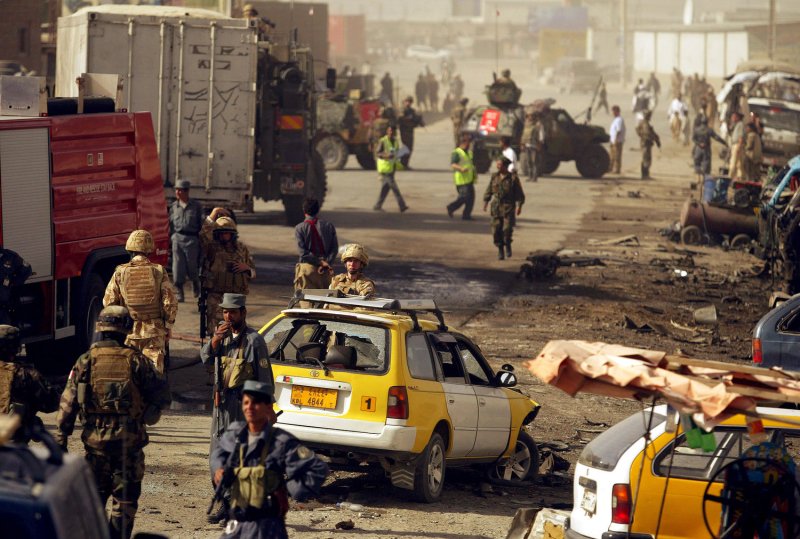NATO soldiers guard the scene of a suicide attack in Kabul, Afghanistan on August 18, 2009. A suicide car bomb attack on a NATO convoy on the outskirts of Kabul, killed at least seven civilians and wounded 52 people, officials said. Afghans working for the United Nations were among the dead and wounded. UPI/Mohammad Kheirkhah |
License Photo
WASHINGTON, Feb. 10 (UPI) -- Enduring engagements and economic constraints mean U.S. Special Forces might have to adjust their mentality for future combat, the top U.S. military chief said.
U.S. Navy Adm. Mike Mullen, chairman of the Joint Chiefs of Staff, said at a defense symposium on Special Operations Forces in Washington that elite military units were under a lot of strain.
He said that with Special Forces winding down their mission in Iraq and entering their 10th year in Afghanistan, there were questions emerging on durability.
"How long can we do it?" he asked. "Somehow we've got to figure out how to create a little more balance as we look to the future."
The top U.S. military commander added that the military must now figure out how to continue working with less money.
"At some point in time -- and I certainly don't speak to the wars that we're in, because we can't back off there -- but at some point in time, we have to ask ourselves, 'What are we going to stop doing?'" he was quoted by the Defense Department as saying.
Navy Adm. Eric Olson, commander of U.S. Special Operations Command, said at the same conference that demands were increasing on elite forces.
"We are, frankly, beginning to show some fraying around the edges," he said.





